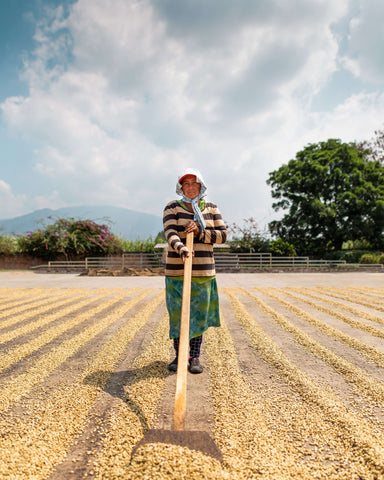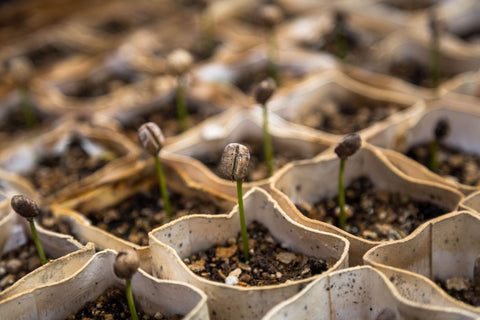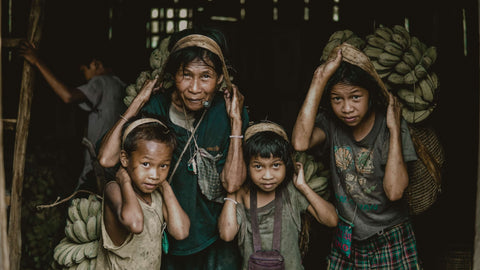International Coffee Day: Sip, Savor, and Support Sustainable Coffee
Table of Contents
- Introduction
- Sustainable Coffee Initiatives: Positive Impact on the Environment
- Sustainable Farming Methods
- Conserving Natural Resources
- Protecting Forests and Habitats
- Minimize Waste and Emissions
- Empowering Farmers: Fair Wages and Ethical Practices
- Fair Wages and Income Equality
- Education and Training
- Healthcare and Wellbeing
- Eliminating Child Labor and Ethical Practices
- The Booming World of Fair Trade Coffee: A Win-Win for All
- Fairtrade Principles
- Transparency and Accountability
- Environmental Stewardship
- Quality and Consistency
- Consumers Choice
- Frequently Asked Questions (FAQs)
- Where does coffee come from?
- What are sustainability initiatives in the coffee industry?
- How can I ensure the coffee I buy is sustainably sourced?
- What is fair trade coffee, and why is it important?
- How do sustainable coffee practices benefit the environment?
- What happens to coffee waste?
- How can I support sustainability in the coffee industry?
- What are some unique coffee flavors associated with different regions?
- How can I learn more about coffee sustainability initiatives?
- Can I make a difference as a coffee consumer?
Introduction
In todays In a world that runs on caffeine and celebrates the art of brewing, coffee has become more than just a morning ritual – it's a global passion. Yet, behind every steaming cup of coffee lies a journey that, if not approached sustainably, can leave a significant ecological footprint. From lush coffee farms to bustling cafes, this article explores the positive impact of sustainable coffee initiatives on our environment and the lives of those who cultivate the beans we cherish.
Discover Your Perfect Cup: Through careful note-taking, you'll uncover the subtleties of each coffee you try with our Coffee Journal and Reference Card Bundle. Understand flavor profiles, acidity, body, and aroma to fine-tune your preferences and find your perfect cup of coffee.
As the global demand for coffee continues to rise, so does the need for sustainable and eco-friendly coffee practices. Coffee production has the potential to impact the environment significantly, from deforestation to water usage and chemical contamination. Sustainable coffee initiatives have emerged as a beacon of hope, playing a vital role in mitigating these negative effects, promoting environmentally responsible practices, and ensuring the longevity of coffee farming.
In this journey, we'll dive into the pillars of sustainable coffee initiatives, from eco-friendly farming methods that prioritize soil health and minimize chemical usage to resource conservation practices that reduce water wastage and protect natural habitats. We'll also explore how these initiatives empower coffee farmers by ensuring fair wages, providing access to education and healthcare, and eliminating unethical practices.
But it doesn't stop there. The world of fair trade coffee has revolutionized the coffee industry, creating a win-win scenario for both producers and consumers. By adhering to principles of fair pricing, transparency, community development, and environmental stewardship, fair trade coffee has become a symbol of ethical and sustainable trading practices.
As a coffee lover and conscious consumer, your choices matter. By understanding the impact of sustainable coffee initiatives and embracing ethically sourced coffee, you actively contribute to a greener and more responsible coffee industry. So, grab your favorite brew, and let's embark on a journey through the world of sustainable coffee, where every sip has the power to make a positive change.
Sustainable Coffee Initiatives: A Positive Impact on the Environment
As the global demand for coffee continues to rise, so does the need for sustainable and eco-friendly coffee practices. Coffee production has the potential to impact the environment significantly, from deforestation to water usage and chemical contamination. Sustainable coffee initiatives play a vital role in mitigating these negative effects, promoting environmentally responsible practices, and ensuring the longevity of coffee farming.
Sustainable Farming Methods:
One of the pillars of sustainable coffee initiatives is the adoption of eco-friendly farming methods. These methods prioritize the health of the ecosystem by reducing the use of synthetic pesticides and fertilizers. Instead, farmers embrace organic farming practices, which include natural pest control, composting, and cover cropping. By minimizing chemical usage and enhancing soil health, coffee farming becomes more sustainable and resilient.
Conserving Natural Resources:
Sustainability in coffee extends to resource management. Water is a precious resource in coffee cultivation, and sustainable practices aim to reduce water wastage through techniques like drip irrigation and water recycling. Furthermore, some coffee farms implement shade-grown practices, which not only promote biodiversity but also reduce the need for excessive watering and protect against soil erosion.
Protecting Forests and Habitats:
Deforestation is a significant concern in many coffee-producing regions. Sustainable coffee initiatives encourage farmers to preserve forests and natural habitats. Shade-grown coffee, as mentioned earlier, supports the growth of trees and vegetation, which, in turn, provides habitat for various species. Some coffee certifications, like Rainforest Alliance, focus on protecting forests and wildlife while promoting sustainable agriculture.
Minimizing Waste and Emissions:
Sustainability also extends to waste reduction and carbon emissions. Forward-thinking coffee producers are finding innovative ways to repurpose coffee waste, such as converting coffee grounds into biofuels or organic fertilizers. Additionally, some coffee farms are exploring carbon offset programs to mitigate the greenhouse gas emissions associated with coffee production and transportation.
In essence, sustainable coffee initiatives prioritize harmony with the environment. They seek to minimize the negative impact of coffee farming on ecosystems and promote practices that preserve natural resources for future generations. By choosing coffee that carries sustainability certifications or supports ethical and eco-friendly practices, you actively contribute to a greener and more responsible coffee industry.
Empowering Farmers: Fair Wages and Ethical Practices
Behind every cup of coffee, there are hardworking farmers who toil day in and day out to nurture the coffee plants. Sustainable coffee initiatives work to empower these farmers by providing fair wages, access to education, healthcare, and improved working conditions. By supporting coffee with a conscience, you contribute to creating a positive impact on the lives of those who make your daily pick-me-up possible.

Fair Wages and Income Equality:
One of the core principles of ethical coffee production is ensuring that coffee farmers receive fair compensation for their labor. Fair trade coffee certifications guarantee that farmers are paid a minimum price for their coffee, which helps stabilize their income even when coffee market prices fluctuate. This financial security allows them to invest in their farms and communities, breaking the cycle of poverty.
Education and Training:
Sustainable coffee initiatives often include programs aimed at improving the knowledge and skills of coffee farmers. Education and training initiatives cover various aspects of coffee cultivation, including sustainable farming practices, quality improvement, and post-harvest processing. Empowered with knowledge, farmers can enhance the quality of their coffee and command better prices in the market.
Healthcare and Well-being:
Access to healthcare and improved living conditions are essential components of ethical coffee production. Some initiatives go beyond coffee and invest in community development projects, such as building schools, clinics, and clean water facilities. These efforts not only benefit farmers and their families but also strengthen the entire coffee-growing community.
Eliminating Child Labor and Unethical Practices:
Sustainability in coffee extends to eliminating unethical practices, such as child labor. Ethical certifications and initiatives set strict guidelines to ensure that child labor is not used in coffee production. By supporting these initiatives, consumers can make a stand against exploitative practices.
The Booming World of Fair Trade Coffee: A Win-Win for All
Fair trade coffee has emerged as a beacon of hope in the coffee industry, providing a mutually beneficial system for coffee producers and consumers alike. It represents a commitment to fair and ethical trading practices, ensuring that those involved in the coffee supply chain are treated with respect and compensated fairly.
Fair Trade Principles:
At its core, fair trade coffee adheres to several key principles, including fair pricing, transparency, and community development. Coffee farmers receive a minimum price for their coffee, which acts as a safety net during volatile market conditions. Additionally, a premium is often paid for community development projects, such as building schools, healthcare facilities, or infrastructure improvements.
Transparency and Accountability:
Transparency is a fundamental aspect of fair trade. Coffee buyers and consumers can trace the journey of their coffee from the farm to their cup, ensuring that ethical practices are upheld at every stage. Fair trade organizations also conduct regular audits to ensure compliance with fair trade standards.
Refine Coffee Tasting Skills: Whether you're a barista, coffee roaster, or just a coffee lover, this print can be an invaluable resource for honing your palate. It helps you identify and describe the nuances in coffee flavors, making your tasting experiences more enjoyable. Checkout our Coffee Flavor Wheel Print to know all the flavors of coffee.

Environmental Stewardship:
Many fair trade organizations prioritize environmentally friendly practices. By promoting sustainable farming methods and discouraging the use of synthetic chemicals, fair trade coffee contributes to the protection of ecosystems and biodiversity.
Quality and Consistency:
Contrary to the misconception that fair trade coffee sacrifices quality, many fair trade coffees are of exceptional quality. The focus on quality improvement and consistent flavor profiles has resulted in award-winning fair trade coffees that compete on the global stage.
Consumer Choice:
As a consumer, choosing fair trade coffee means aligning your values with your purchasing decisions. It sends a clear message that you support ethical and sustainable coffee practices while making a positive impact on the lives of coffee farmers.
Frequently Asked Questions (FAQ)
- Where does coffee come from?
- Coffee primarily comes from regions within the "coffee belt," which spans countries between the Tropics of Cancer and Capricorn. These regions, including Ethiopia, Colombia, Brazil, and more, are ideal for coffee cultivation.
- What are sustainability initiatives in the coffee industry?
- Sustainability initiatives in the coffee industry promote environmentally and socially responsible practices. They aim to preserve biodiversity, ensure fair wages for farmers, promote ethical labor practices, and minimize the environmental impact of coffee production.
- How can I ensure the coffee I buy is sustainably sourced?
- Look for certifications like "Fair Trade," "Rainforest Alliance," or "Organic" on coffee packaging. Additionally, research and support coffee brands that prioritize transparent and sustainable sourcing practices.
- What is fair trade coffee, and why is it important?
- Fair trade coffee ensures that farmers and laborers involved in the coffee supply chain are treated ethically and compensated fairly. Choosing fair trade coffee supports equitable practices and community development in coffee-growing regions.
- How do sustainable coffee practices benefit the environment?
- Sustainable coffee practices focus on conserving biodiversity, using eco-friendly farming methods, and reducing the environmental footprint of coffee production. These initiatives protect ecosystems, promote soil health, and minimize chemical usage, fostering a more sustainable environment.
- What happens to coffee waste?
- Coffee waste is finding innovative uses, from becoming natural fertilizers for plants to being transformed into eco-friendly furniture. Recycling coffee waste helps reduce landfill waste and contributes to a circular economy.
- How can I support sustainability in the coffee industry?
- Support sustainability by choosing coffee brands that prioritize ethical and eco-friendly practices. Look for certifications and labels indicating sustainable sourcing. Additionally, consider participating in coffee-related initiatives that promote positive change in coffee-growing communities.
- What are some unique coffee flavors associated with different regions?
- Coffee flavors vary based on their growing regions. Ethiopian coffee is known for fruity and floral notes, while Colombian coffee often features balanced profiles with hints of caramel and nuts. Exploring single-origin coffees allows you to experience diverse taste profiles.
- How can I learn more about coffee sustainability initiatives?
- Delve deeper into coffee sustainability by visiting reputable websites, organizations, and resources dedicated to ethical and sustainable coffee practices. Books, documentaries, and online materials offer insights into the journey from farm to cup and the impact of sustainability initiatives.
- Can I make a difference as a coffee consumer?
- Absolutely! Your choices as a coffee consumer have a significant impact. By choosing sustainably sourced coffee and supporting ethical brands, you contribute to a more sustainable and socially responsible coffee industry. Your daily cup can be a step toward positive change in the global coffee community.
Conclusion
In conclusion, fair trade coffee represents a win-win situation for all stakeholders. It ensures that coffee farmers receive fair compensation, promotes transparency and ethical practices, and allows consumers to enjoy high-quality coffee with a clear conscience. By choosing fair trade-certified coffee, you actively contribute to positive change in the coffee world.
Unique Gifts: Searching for the perfect holiday gift for a coffee lover? Look no further. Our coffee collection includes unique and thoughtful gifts that celebrate the love of coffee, from beautiful prints to informative journals.






